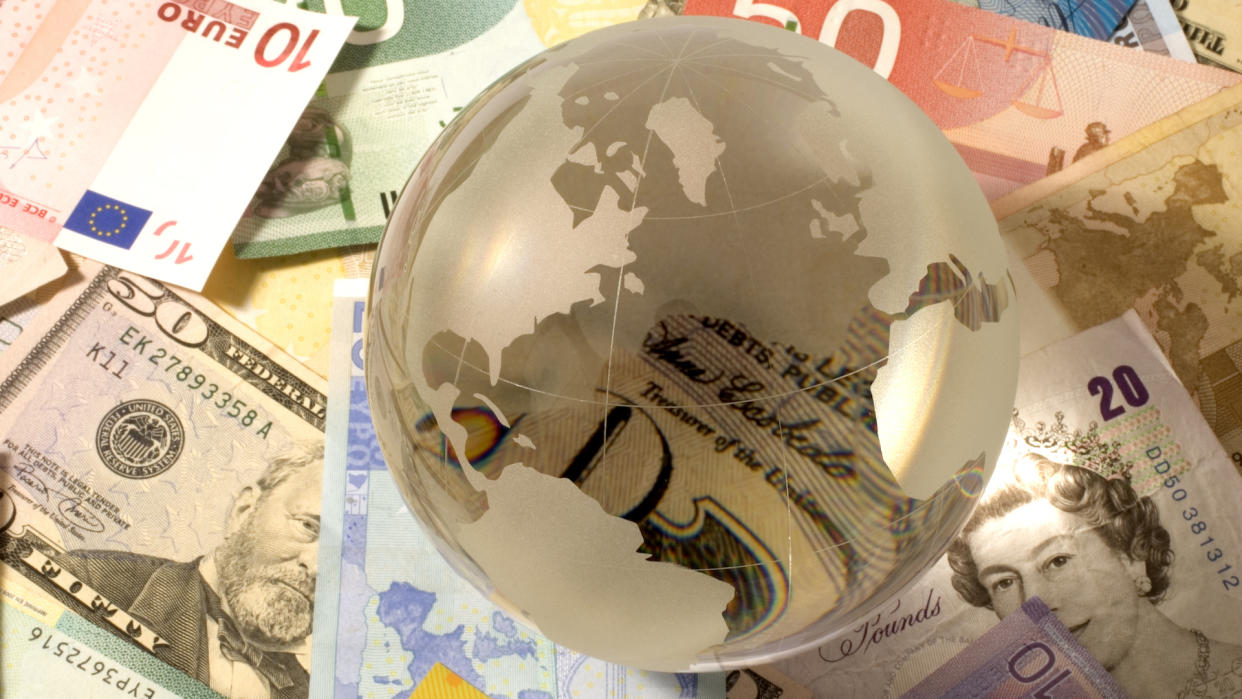How Many Billionaires Are There in the World and Should They Pay a Global Minimum Tax?

Have you ever speculated what would happen if a billionaire divided all his money equally among the world’s citizens? While the idea makes for interesting dinner conversation, it wouldn’t solve the wealth inequity problems across the world, feed hungry people or even lead to a healthier world economy.
Check Out: What To Do If You Owe Back Taxes to the IRS
The U.S. Census Bureau estimated that there are more than 8 billion people in the world in 2024. Billionaire Jeff Bezos, the richest man in the U.S. right now, according to Forbes, has a net worth of $196.9 billion as of March 22, while Elon Musk has a net worth of $192.6 billion as of the same date. That means if either Bezos or Musk divided their wealth evenly across the world, everyone would get roughly $24.
Of course, neither business mogul holds his wealth entirely in cash. Redistributing their wealth would mean people would receive stock options or Musk and Bezos would have to liquidate shares of their investments to free up cash.
While the scenario of billionaires redistributing their wealth in such a way is impractical, other options to create greater wealth equity exist. For instance, economists have been exploring the possibility of a global minimum tax for the world’s wealthiest people.
How Many Billionaires Are There in the World?
Forbes counted 2,640 billionaires in 2023. In the U.S., the top 1% of earners hold 26.5% of the country’s wealth.
The Global Tax Evasion Report 2024, a recent report from the EU Tax Observatory out of the Paris School of Economics, includes a proposal that seeks to tax billionaires at a global minimum tax rate of just 2% of their total wealth.
How Much Do Billionaires Pay in Taxes?
The Global Tax Evasion Report revealed that billionaires across the world pay just 0% to 0.5% of their wealth in taxes, the International Consortium of Investigative Journalists reported.
Compare this to the federal tax brackets and marginal tax rates in the U.S. for 2024. Lower-income Americans who fall into the lowest tax bracket pay 10% of their income in federal taxes.
Meanwhile, middle-income Americans earning between $44,726 and $95,375 have a marginal tax rate of 22%. That means their income is taxed at rates of 10%, 12% and 22%.
How Billionaires Avoid Taxes
Prior to 2018, many wealthy business owners hid their money in offshore tax havens. Automatic sharing of account information and an end to banking secrecy reduced offshore tax havens by a factor of three, according to researchers. But wealthy investors and business owners found other ways to avoid paying taxes.
The Global Tax Evasion Report discovered that billionaires now shelter their personal income tax in shell companies or real estate. Billionaires also purchase assets such as art, private planes and superyachts, which are more difficult to track through the banking system.
In the U.S., President Joe Biden had proposed a 25% minimum tax for the top 0.01% of earners in the U.S. But that proposal never took off, amid the threat of a government shutdown and looming debt ceiling.
Watching billionaires dodge taxes is bad for democracy and the world economy, according to researchers. “If citizens don’t believe that everyone is paying their fair share of taxes — and especially if they see the rich and rich corporations not paying their fair share — then they will begin to reject taxation,” economist Joseph Stiglitz noted in a foreword to the Global Tax Evasion Report.
The EU Tax Observatory’s Plan
Researchers determined that taxing the world’s billionaires just 2% of their wealth each year could raise an additional $250 billion in revenue for the countries where the world’s wealthiest reside, including the U.S. and France. While this alone won’t solve income inequality, it could give countries some of the revenue they need to address problems like climate change.
The report also proposed strengthening the global minimum tax rate for corporations to raise an additional $250 billion in annual revenue.
“If the money stayed in corporations and they invested in new enterprises that would be one thing, but the money typically goes to rich people. Not taxing multinational corporations has provided a flow of wealth to a few people,” Stiglitz said, as reported by the International Consortium of Investigative Journalists.
Information is accurate as of March 22, 2024.
This article originally appeared on GOBankingRates.com: How Many Billionaires Are There in the World and Should They Pay a Global Minimum Tax?
